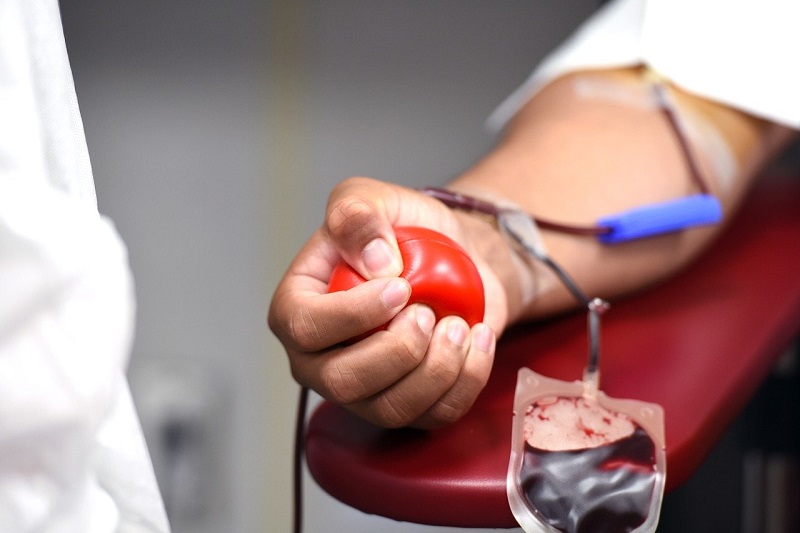

World Blood Donor Day is celebrated on June 14, every year to create awareness about the importance of blood transfusion and blood donation among the masses, what’s more, important is the diet plan everyone should follow before and after donating the blood for their recovery.
Blood donation is a noble cause and should be performed by every individual. Just a simple act can be a reason to save many lives from danger. A lot of people every year require Blood transfusion for various reasons like accidents, cancer, surgery and many more.
Blood donation helps the body to produce fresh red blood cells. Regular donation usually requires 450 ml of blood, if the person is fit to do so.
Due to blood donation, a bit of weakness may occur in the donor’s body. The donor should make sure to follow a proper diet before and after donating blood to avoid weakness after donation.
What to eat before blood donation:
Drink a good amount of water. A donor must be hydrated before blood donation.
Reports suggest that loss of blood causes loss of iron from the body which creates fatigue, therefore the donor must consume food products that are rich in iron to avoid dizziness and fatigue. Food products like chickpeas, meat, pumpkin seeds, brown rice, wheat bread, fish and Spinach are rich in iron.
Plant-based iron can be consumed from citrus fruits such as Mango, Kiwi and pineapple.
What not to eat before donation:
Food products such as Red meat, fried food, and junk food that are high in fat should be avoided.
Avoid consuming any type of alcohol before donation as it may result in dehydration in the body.
Smoking just before donation makes the person non-eligible to donate, as after smoking a lot of toxic chemicals flows into the blood which can’t be transfused in a patient’s body.
What to eat after Blood Donation:
Other than iron, loss of blood also causes a loss of sugar level in the blood. The donor right after donation must have some juice and light snacks to recover the loss of sugar in the body.
High iron food must be consumed to fulfil the iron requirement of the body and for new Red blood cells to create.
Alcohol and smoking should be strictly avoided after blood donation for min. 24hrs.
People between 18-65 yrs. of age are eligible for donating blood only if their haemoglobin level is more than 12.5 and they must not have any tattoos on their body.